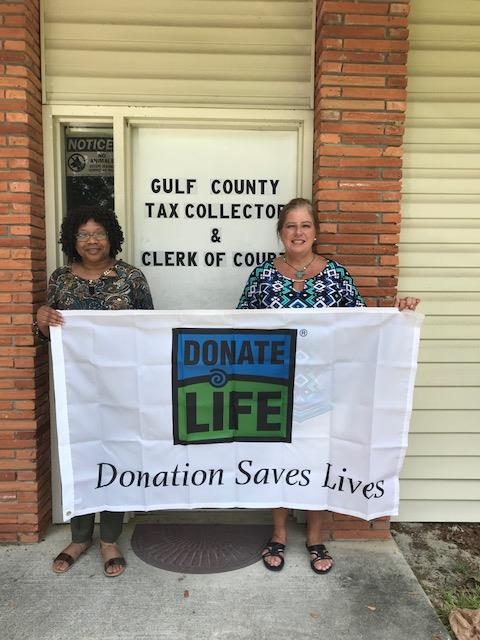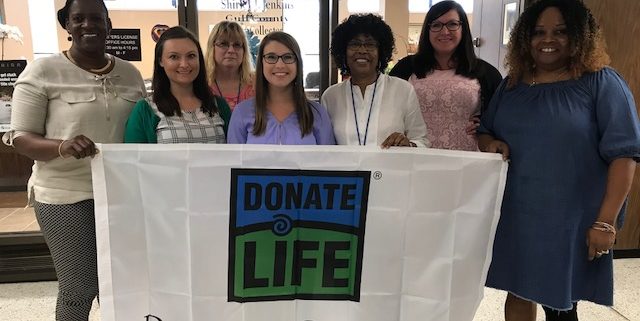Small Tax Collector Office With Big Results
“I think I can, I think I can.” That was the motto of The Little Engine That Could.
Gulf County Tax Collector’s offices recently took a leaf out of the classic children’s book that teaches the value of optimism and hard work. With an organ donor sign-up rate averaging 67 percent in April, they finished third in the Florida Panhandle – an outcome usually attained by larger, more urban areas. The average donor designation rate among Florida tax collector offices is 52 percent.
Gulf County Tax Collector Shirley Jenkins and staff were treated to an office pizza party for their achievement.
I’m proud to see my staff recognized for the wonderful life-changing work they do every day,” said Jenkins, who oversees a workforce of 10.

Employees at the Wewahitchka office
Nine employees, including Jenkins, are assigned to the main office located inside the Gulf County Courthouse in Port Saint Joe. Two employees work from a small satellite office in Wewahitchka. Gulf is one of a small number of counties to be under two time zones, Central and Eastern.
Gulf County’s triumph is particularly impressive given the size and scope of the competition. The small coastal community outpaced tax collectors in 33 counties with just a handful of employees. Percentage-wise, they finished neck and neck behind behemoths like Walton County (68.2 percent), population 36,500, and St. Johns County (67.1 percent), population 227,000, respectively. Gulf County has 15,800 full-time residents.
Like The Little Engine That Could, Gulf County’s formula for success is simple and selfless. Eleven professionals in two offices asked one question amid their daily routine, “Do you want to be an organ donor?”
“We take the time to talk with our customers and explain to them,” said Danette Medley, a tag and title clerk in the Wewahitchka office.
Donate Life Florida celebrates National Donate Life Month in April. Local, regional and national activities are designed to honor and recognize those who have saved lives through donation and encourage others to register as organ, eye and tissue donors.
Ninety-five percent of Florida’s donors register through the tax collector offices and Florida Department of Highway Safety & Motor Vehicles when completing driver license applications. About 114,000 people are on the national organ transplant waiting list. One donor can potentially save up to eight lives.
Florida’s donor registry is the third largest in the nation due in large part to the generous work tax collector employees do behind the scenes every day.






